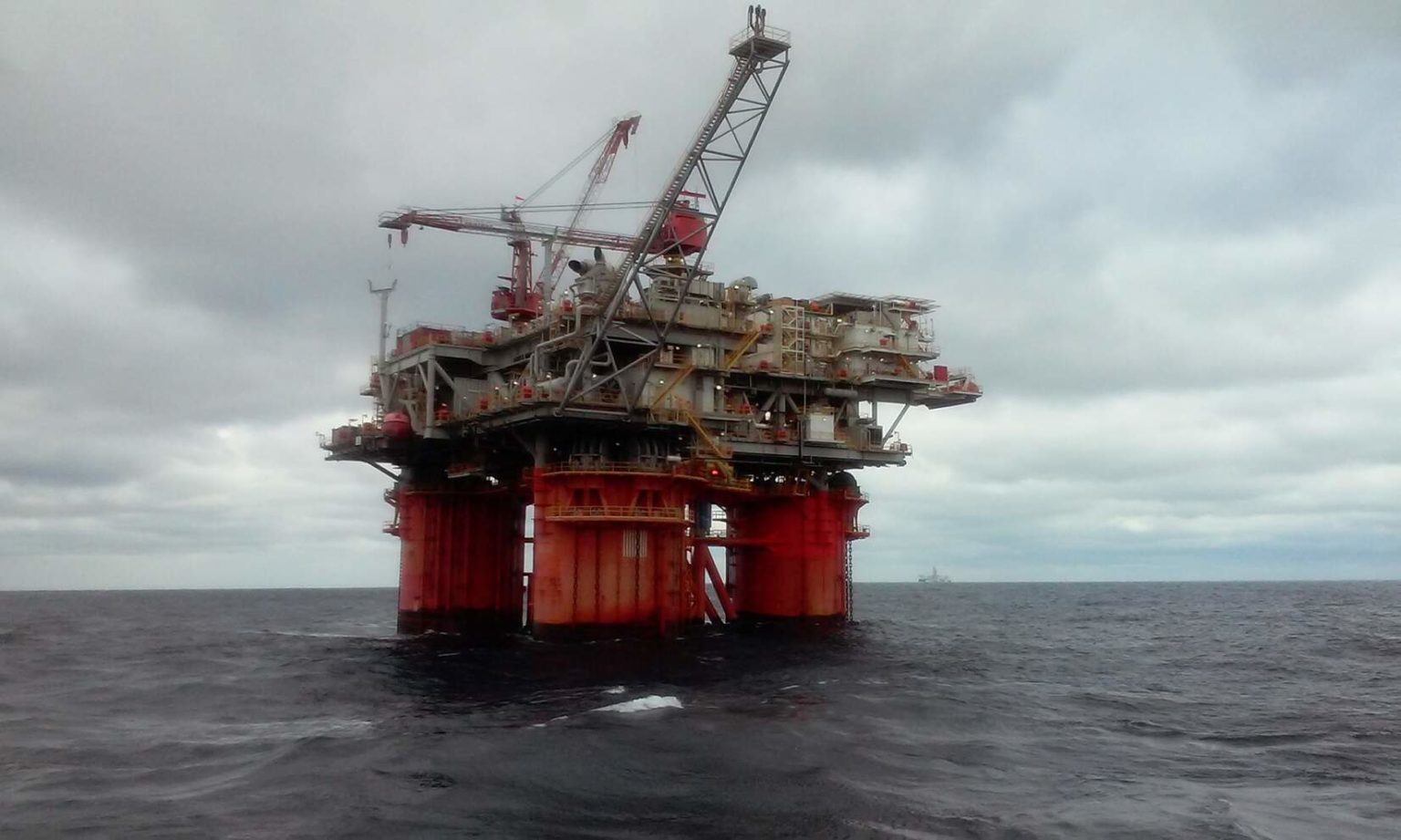Campaigners have reacted with anger to the UK’s decision to allow new exploration for oil and gas in the North Sea, despite the recognition that it must be compatible with national climate goals.
Climate campaigners had hoped that the UK would immediately stop issuing new licences to explore for and extract oil and gas from the North Sea, saying this was essential to meet the country’s commitment to be net zero by 2050.
But exploitation of fossil fuel reserves in North Sea is being allowed to continue as long as future licensing rounds pass a ‘climate compatibility’ test. Campaigners were also disappointed that their calls for a reversal of policy of ‘maximising economic recovery’ for the North Sea had also gone unheeded.
‘Climate compatibility’
The climate compatibility test will use the “latest evidence” to assess projects against the 2050 net zero target as well as domestic demand for oil and gas, the UK’s domestic energy diversity, the prevalence of clean technologies and the oil and gas sector’s projected production levels and progress against emission reduction targets.
The government announced the measure as part of a “landmark deal” this morning to start decarbonising the domestic oil and gas industry and pledged to invest in carbon capture and hydrogen technologies, following a major review of fossil fuel exploration policy.
It said this would ensure that “high-skilled oil and gas workers and the supply chain will not be left behind in the transition to a low-carbon future”.
Like what you’re reading? Support DeSmog by becoming a patron today!
Business and energy secretary Kwasi Kwarteng said the UK was experiencing an “irreversible shift away from fossil fuels” and the deal sent a “clear message around the world that the UK will be a nation of clean energy as we build back better and greener from the pandemic”.
He said the deal would harness the “skills, capabilities and pent-up private investment potential of the oil and gas sector to power the green industrial revolution”, though the announcement itself provides little detail about how workers will be helped to transition to greener jobs.
Romain Ioualalen, senior campaigner at campaign group Oil Change International, felt the UK had wasted an opportunity to demonstrate its commitment to climate leadership ahead of the COP26 talks in Glasgow in November.
“Making future licensing rounds conditional on vaguely defined climate compatibility checkpoints is a subterfuge aimed at concealing a simple fact: handing out new licenses for oil and gas is not compatible with limiting warming to 1.5°C,” he said.
“Wealthy oil and gas producing countries such as the UK have a responsibility to lead in phasing out extraction, a reality that the government ignored today. Other countries such as Denmark, New Zealand, and France have already ended oil and gas licensing rounds, and the UK is now a laggard in this respect.”
Read DeSmog’s series – A Just Transition: From Fossil Fuels to Environmental Justice
Friends of the Earth Scotland’s just transition campaigner Ryan Morrison was equally critical of the government’s announcement, saying the decision exposed the “outrageous hypocrisy” inherent in the UK government’s approach to the climate emergency.
“The science on this is already crystal clear; burning fossil fuels is the key driver of this crisis so to avoid climate breakdown there can be no new licenses and existing production must be wound down over the next decade – a new ‘climate compatibility checkpoint’ isn’t going to change that reality.”
“Instead of continuing to prioritise corporate interests, the government must set an end date for oil and gas extraction in the UK and focus on engaging with workers and communities to build a plan for a new renewable energy future, backed up by investment from redirecting the vast public subsidies going to fossil fuels, to build a socially just zero-carbon economy.”
Decarbonisation plans
Experts were also scathing about moves to decarbonise oil and gas production on the UK Continental Shelf, which is directly responsible for around 3.5 percent of the UK’s greenhouse gas emissions.
The government is setting emission reduction targets for operational emissions and spending “up to £3 billion” to replace fossil fuel-based power supplies on oil and gas platforms with renewable energy.
But Luke Murphy, head of the IPPR environmental justice commission, said: “There is no such thing as a low-carbon barrel of oil. The most effective way to reduce emissions is by phasing it out.”
Campaigners did, however, welcome the announcement that the UK would stop public financial support for overseas fossil fuel exploration from the end of the month, having promised to set a timetable for doing so last year.
DeSmog and others had previously revealed how the UK was giving billions of pounds of annual support to polluting projects overseas through offers of export credit, loans, guarantees, and insurance against loss. The government is currently facing legal action for providing around $1bn in support for a liquified natural gas pipeline in Mozambique.
Image: Keri Jackson/Pixabay. Public Domain.
Subscribe to our newsletter
Stay up to date with DeSmog news and alerts






